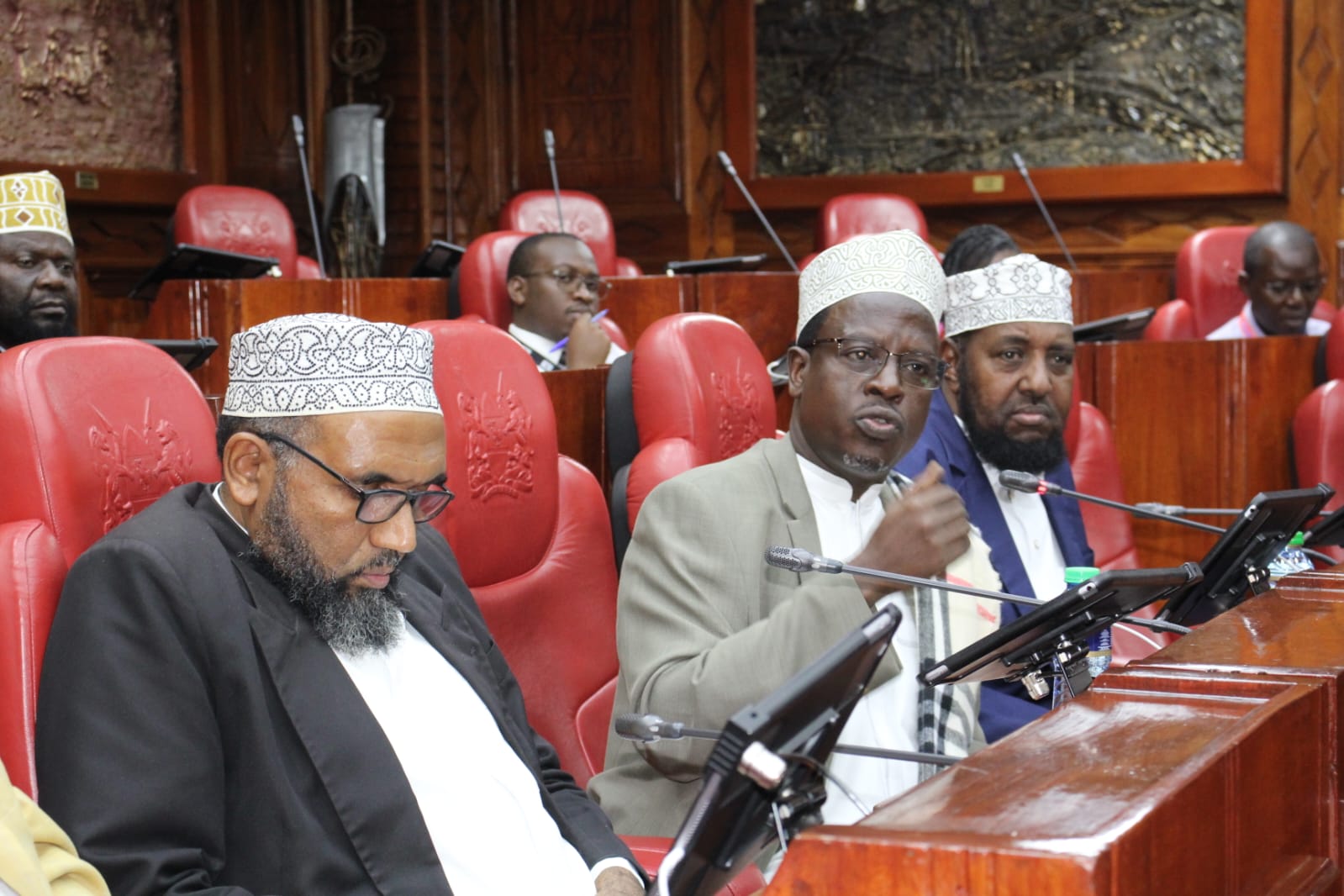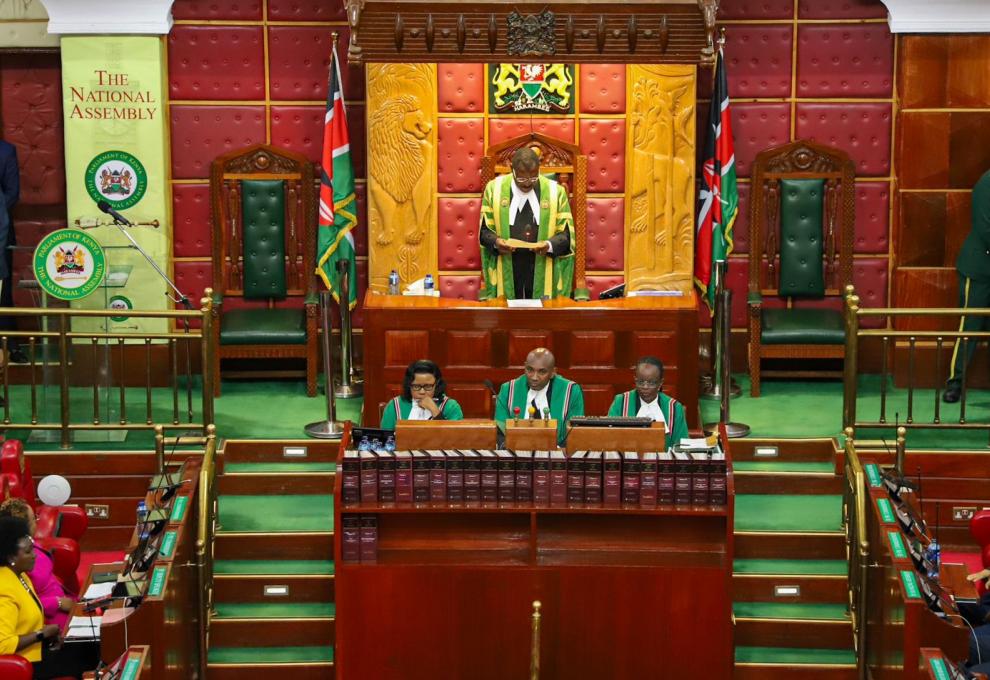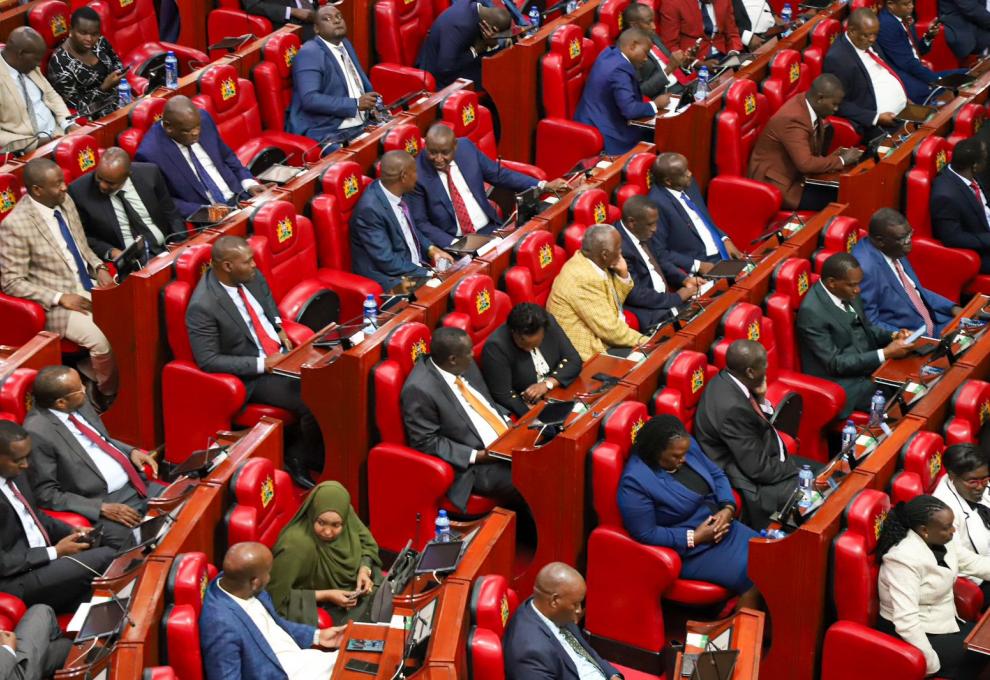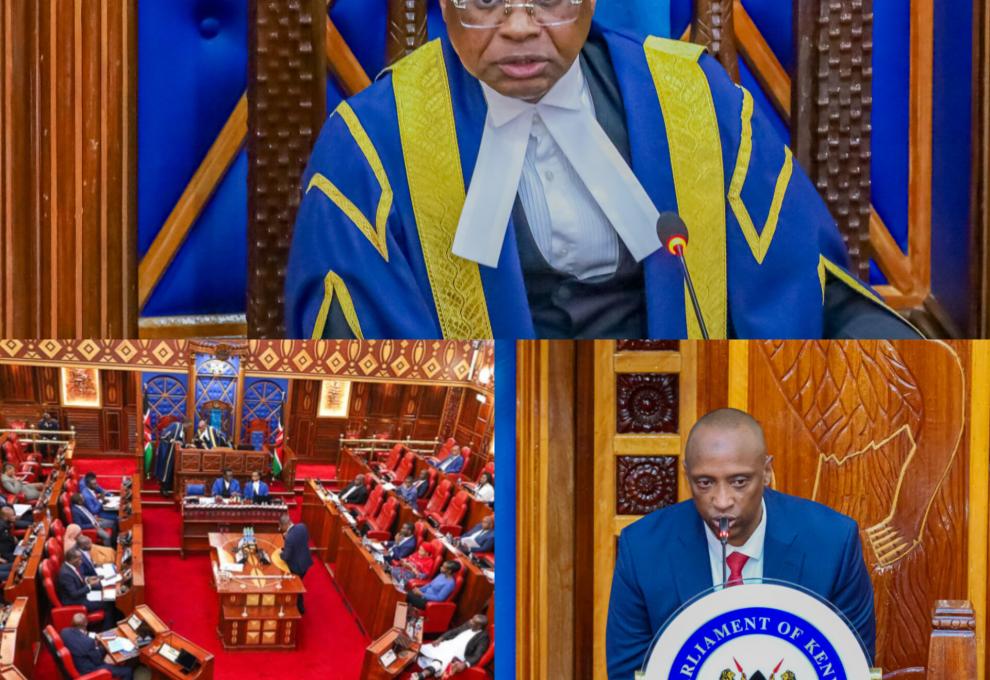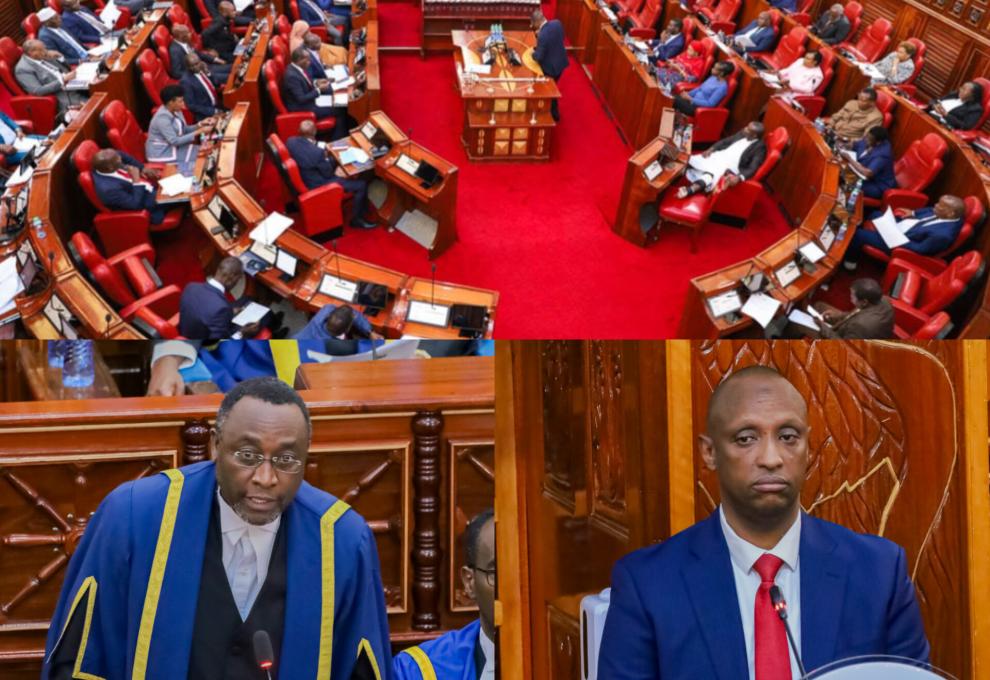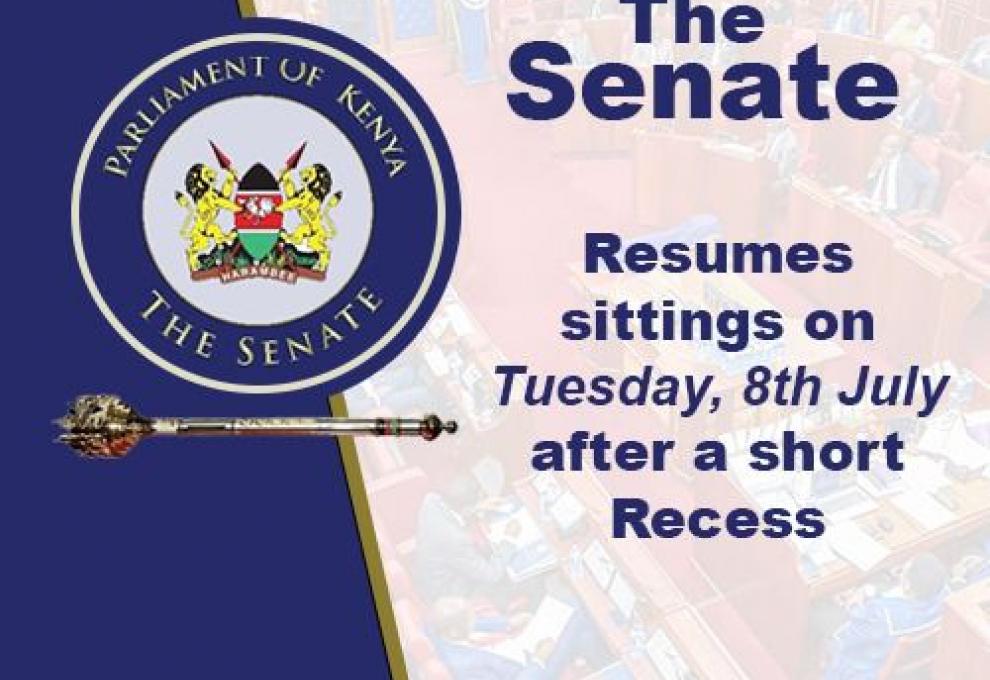𝐑𝐄𝐋𝐈𝐆𝐈𝐎𝐔𝐒 𝐄𝐗𝐓𝐑𝐄𝐌𝐈𝐒𝐌 𝐒𝐇𝐎𝐔𝐋𝐃 𝐁𝐄 𝐂𝐑𝐈𝐌𝐈𝐍𝐀𝐋𝐈𝐒𝐄𝐃, 𝐒𝐔𝐏𝐊𝐄𝐌 𝐓𝐄𝐋𝐋𝐒 𝐒𝐇𝐀𝐊𝐀𝐇𝐎𝐋𝐀 𝐂𝐎𝐌𝐌𝐈𝐓𝐓𝐄𝐄
The Supreme Council of Kenya Muslims (SUPKEM) has said there should be an entity in the Office of Registrar of Societies that will strictly deal with matters faith in term of registration and regulation of religious organisation.
The Council said the office as currently constituted by law is saddled with registration and regulation of many other entities, ranging from sports and welfare associations, making it impossible to monitor and mete out punishment where there is violation.
In a presentation to the Senate Adhoc Committee on the Proliferation of Religious Organisations, SUPKEM insisted that the state should not have space in matters that concern religion.
"Each faith should regulate itself because Kenya is a secular state and there is no state religion. It is wrong to surrender such a role to the state as it is not acquainted in matters of the other faith," Hassan ole Naado, the SUPKEM chairman, told the committee.
The 11-member committee, which is chaired by Tana River Senator Danson Mungatana is investigating circumstances that led to the deaths in Shakahola Forest where 265 bodies have been exhumed so far.
SUPKEM proposed that every religion should be allowed to be part of umbrella organisation whose role will be to conduct background check of every application for registration for effective regulation of the activities religious organisations.
Each umbrella organisation should have a caucus whuich will act as doctrinal commitee whose work will be to independently and expertly review teachings and preaching of respective religions and guide their own followers as well as advise the relevant government authorities on the appropriateness of such teachings of religious scholars whose main aim will be to determine whether the sermons delivered on places of worship are in line with the holy scriptures or a meant to mislead.
"The caucus will register, conduct background checks and take note of something abnormal with the sermons," said ole Naado, adding that there is need to have surveillance on al organisation to ensure that misleading messages do not emanate from the places of worship.
He said the caucus will also interpret the sermons and determine whether it is in line with declared doctrine.
SUPKEM declared that it had adopted a cautious approach against the Committee, expressing fear that it could be another scheme by the state to intervene in religious matters.
“There are many ways in which the state and religion are intertwined. As much as state recognizes and entertains the role of religion
SUPKEM further proposed that the state should enact a law creating religious crimes.
The crimes should target individuals who misinterpret religious doctrine for personal gain.
"We must create religious crimes in our laws to take account of those who commit crimes in the name of religion," ole naado argued



